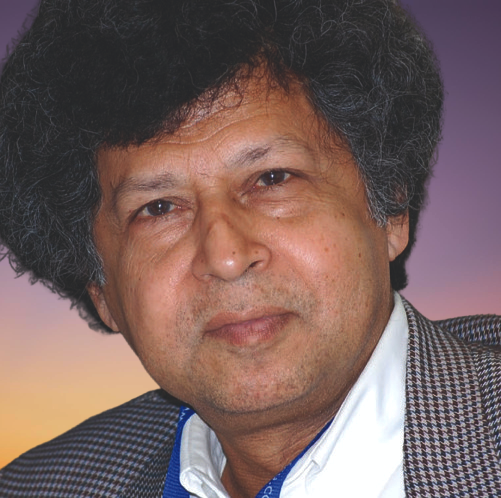Column

Freepik
In the shadow of every crime, whether grand or petty, lurks a network of enablers. These individuals, often hidden in plain sight, grease the wheels of illicit activities. The burglar who breaks into a house frequently receives a nod from a complicit guard who, rather than alerting the homeowner, guides the thief to the easiest entry point. When a businessman siphons millions from a bank, the crime is often facilitated by bank managers who help legitimize fraudulent documents. When vast tracts of land are unlawfully seized, local authorities frequently turn a blind eye, enticed by the promise of a share in the spoils.
These accomplices, more aptly termed 'enablers,' provide the crucial support needed to execute crimes. Their involvement ranges from direct participation to passive complicity. Some are motivated by the prospect of financial gain, while others comply under duress or out of loyalty to more powerful figures.
One of the most infamous fraudsters in recent American history was Bernie Madoff. Over seventeen years, this cunning hedge fund manager orchestrated a Ponzi scheme that swindled billions of dollars from investors, lured by the promise of high returns. When his scheme unraveled in 2008, it became evident that Madoff had misappropriated a staggering $56 billion. Investigations revealed that many individuals, including family members, banking officials, and even regulators from the Securities and Exchange Commission, either knew about or actively supported his fraudulent activities. Some created fake documents to deceive investors, while others stayed silent to preserve their own financial interests. These enablers largely escaped scrutiny, despite their pivotal roles in Madoff's operations.
Another prominent figure who has benefitted from enablers is Donald Trump. The former U.S. President, despite his role in inciting the January 6, 2021 insurrection, remains free, largely due to the protective shield provided by his Republican allies. Nearly a thousand individuals have either been convicted or jailed for their roles in the Capitol attack, yet Trump, the orchestrator, continues to evade justice. His enablers include members of the judiciary, some of whom were appointed during his tenure, and politicians who support him unconditionally. Liz Cheney, a former party leader turned critic, has labeled these individuals not just as 'enablers' but as 'collaborators.' In her memoir, "Oath and Honor," Cheney reveals how these enablers are well aware of Trump's ongoing criminal activities but choose to support him out of a thirst for power.
A striking example is former House Speaker Kevin McCarthy. Initially, McCarthy acknowledged Trump's electoral defeat, only to later recant and propagate Trump's false claims. Cheney recounts in her book how McCarthy admitted to her speaking to Trump who acknowledged he knew to have lost the elections. Yet, McCarthy went on Fox news to repeat Trump's lies. This duplicity highlights the dangerous role enablers play in sustaining false narratives and undermining democratic processes.
In Dhaka, several recent scandals have revealed how the web of lies shielded by high-ranking officials continue to facilitate massive financial frauds. The former head of the country's paramilitary force and the former military chief have been implicated in land grabs and other illicit activities. The wealth they accumulated is astounding and would not have been possible without the complicity of numerous facilitators. Yet, these enablers remain uncharged and unnamed. The bank directors who approved dubious loans, the officials who sanctioned illegal land grabs, and the bureaucrats who issued fraudulent passports-all remain in the shadows.
One recent exposé by a Dhaka newspaper revealed how the disgraced RAB chief obtained a Ph.D. from Dhaka University despite being unqualified. The admission criteria were relaxed at the behest of the then Dean of the Faculty of Business Studies, Professor Shibli Rubaiyat-ul-Islam, who also supervised the RAB chief's doctoral program. This clear case of academic fraud underscores how enablers can operate within supposedly respectable institutions.
This begs the question: whose crime is greater-the thief's, or the doorman's who made it easy for the thief to steal? In the case of Professor Rubaiyat-ul-Islam, no punitive action has been taken, leaving only public shaming as a recourse.
High-profile criminals frequently escape justice by fleeing the country, often with the tacit or explicit help of officials. Recently, a senior minister expressed exasperation when confronted with yet another heist involving a DMP commissioner. The minister claimed ignorance, highlighting a systemic failure to investigate and prosecute such crimes. This lack of accountability raises fundamental questions about the efficacy of our law enforcement and regulatory bodies.
The deeper issue lies within the fabric of our society, where thievery is often seen as a respectable vocation until the perpetrators are exposed. In frustration, Bangabandhu once lamented that he was surrounded by cheats, whom he disdainfully referred to as 'chatar dol,' or lickspittles. Bangabandhu is long gone, but the chatar dols he so openly despised still remain. These cheats and their enablers, well-known within their communities, continue to wield power and influence. Their wealth and status grow, bolstered by public adulation and connections.
We, the onlookers, may feign helplessness, but in reality, we too are complicit. We know who these enablers are-they are our friends, family members, colleagues, and neighbors. As their power and influence grow, so does our respect for them. We invite them as chief guests to special occasions, publicly laud their achievements, and often take pride in our associations with them.
In truth, we too are enablers. Yes, we all are part of a nation of enablers.
The writer is a journalist and author based in New York.
8 July 2024, New York

























Leave a Comment
Recent Posts
Auspicious beginnings, but a l ...
The newly elected government of Bangladesh is now in office, and the e ...
Caught between tigers and pira ...
Over 10,000 fishermen in the Sundarbans have suspended their fishing a ...
Historic Chawk Bazar comes alive with iftar items on ..
Shaping Young Conservationists: School Conservation ..
Iran has said it has reached an understanding with t ..
New Finance Minister Amir Khosru Mahmud Chowdhury